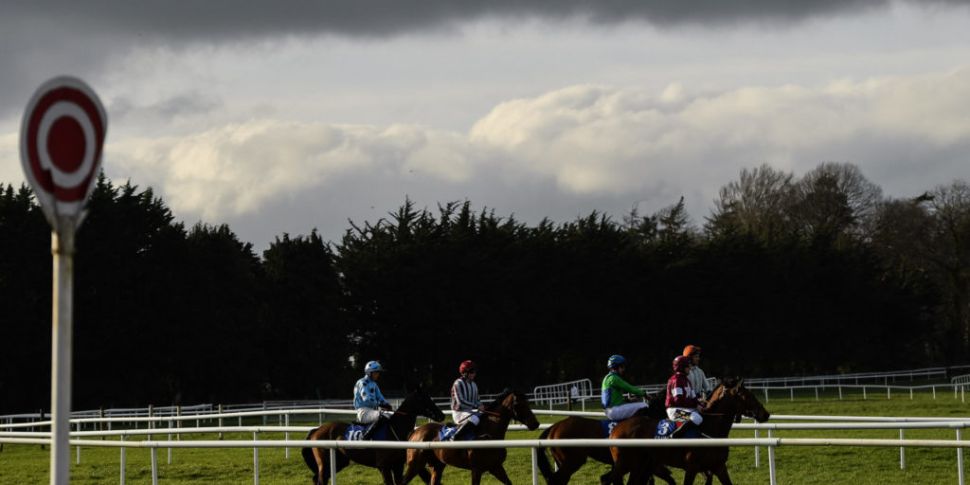Horse Racing Ireland chief executive Brian Kavanagh is welcoming the decision to allow racing to restart behind closed doors on June the 8th.
"It's good news and certainly a lot better than June 29th," Kavanagh told Off The Ball's Friday Night Racing. "Racing and the industry behind it is a wheel that never stops spinning, there's always something spinning on it and that's the problem.
"When everything shut down on the track due to COVID-19 the industry behind it ground to a halt and that led to a lot of difficulties for people. This is not a case of resuming because it's something that people wanted to play...it's resuming because there's a large industry and activity going on behind it which depends on what goes on on the track so it's good news.
"Racing has resumed in France and Germany in the last two weeks and will resume in Britain on the 1st of June and here on the 8th of June which is great."
"We've had a number of programmes ready for different resumption scenarios so we'll publish that on Sunday, we've a board meeting tomorrow to sign off on the details so we'll publish the details of meetings initially up until the end of June. The key today was to get a decision and some certainty and clarity around our resumption.
"We've lost 11 weeks racing and the intention would be to try and make up those lost opportunities throughout the rest of the year and not just in the first month. Obviously the fixture list has been torn up for the months of April and May and indeed June with this so we'll publish a revised fixture list for June and then over the course of the rest of the year we'll see what changes need to be made to the remainder of the fixture list to make up for those meetings that have been lost.
"We'll endeavour to rescue as many of the lost opportunities as possible and that's more to do with the importance to the breeding and sales industries, Ireland is the leading exporter of horses and that's all determined by what's going on on the track. When racing is taking place, buyers around the world are looking at the races with a view to buying horses.
"Overseas runners are completely dependent on government policy in each country. France and Germany have no overseas runners until the end of May and I believe in the UK there will only be overseas runners in Group One and Group Two races to start with so we need to look at that. The horses are not the issue here but rather the people that travel with the horses and the requirement for them to comply with guidelines for people visiting the country. If anything is done at all it'll be entirely in conjunction with the government requirements to people coming from overseas."
The last of ten meetings behind closed doors to be held in Ireland before the coronavirus shutdown was at Clonmel on March 24th.
"We learned a lot from the ten meetings," Kavanagh added. "They were good and people took to them very quickly. People in racing are used to rules and regulations, they're used to bio security, they do it every day in their stables at home so they took to that quite well.
"The arrangements got better as each meeting went on and since then we've strengthened those protocols, at the time they were around 25 pages and now they're nearly 60 pages. We've liaised with our international counterparts and taken on HSE advice, they're a living document and there's a strong set of protocols there.
"To me, it's a sad place having a race track with no public, no bookies, no restaurants, but they are very well suited to social distancing. These are outdoor spaces with a lot of space and a lot of empty rooms now because the public aren't there so they can be used in order to space people out.
"While we call them race meetings they aren't meetings as we know it, these are really trials and races on the track to determine the best horse in various categories which is what allows the industry behind it to keep moving.
"We'll keep the very minimum amount of people there that are needed so our experience (of racing behind closed doors) has been good and the advice of our international colleagues has been helpful as well.
"There will be no owners at the races, the idea is to have the minimum about of people on site as is necessary so as to minimise the risk. There will be strict measures for those attending, you'll have to complete health questionnaires on the day before and will have to authorised by the IHRB doctor. On arrival you'll be screened for temperature and anyone with an elevated body temperature won't be allowed in.
"On the racecourse itself there will be significant measures with regard to maintaining social distancing. Hand washing, spacing out in areas such as the weigh room and parade ring, many of the people on track will be required to wear masks and gloves and all the normal precautions.
"When you strip back the attendance and the people who normally be serving spectators it reduces the numbers greatly at the track. You need the horses, jockeys, the people to look after the horses, a medical team, TV crews and then you're largely away at that stage.













